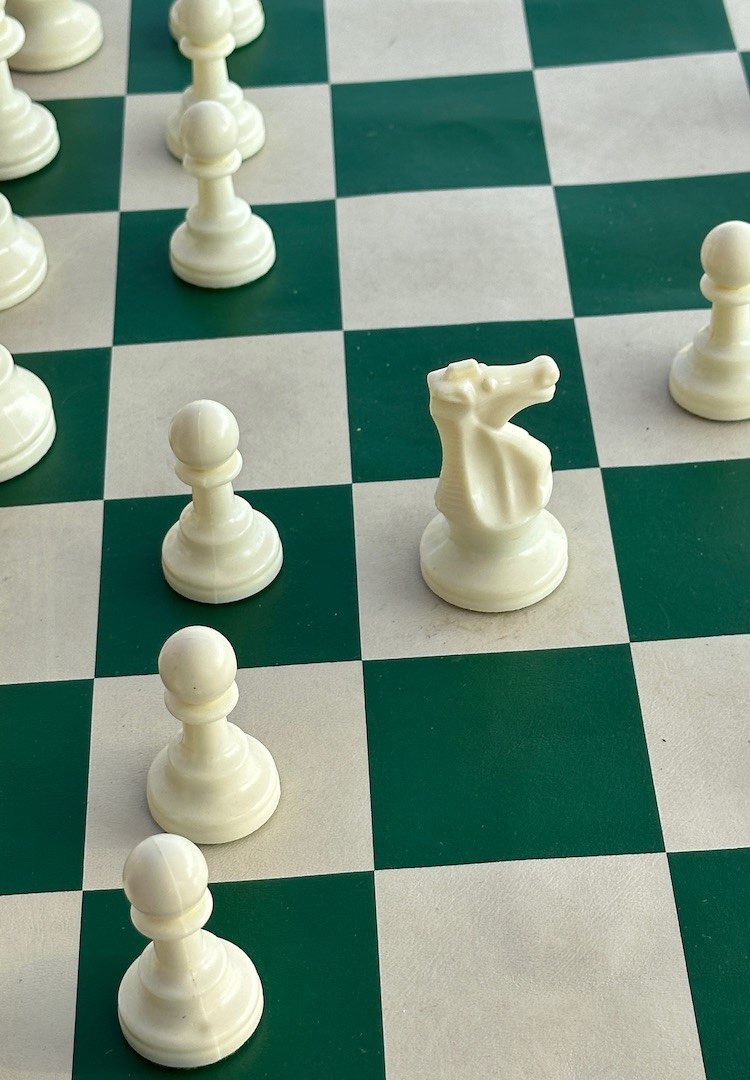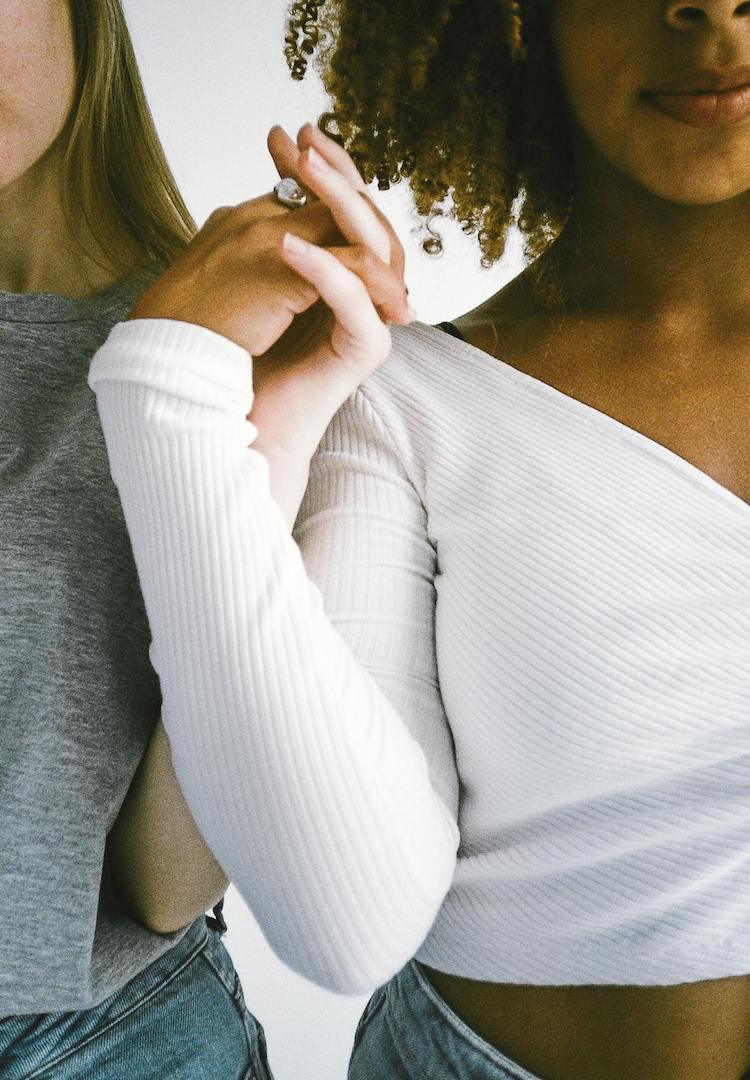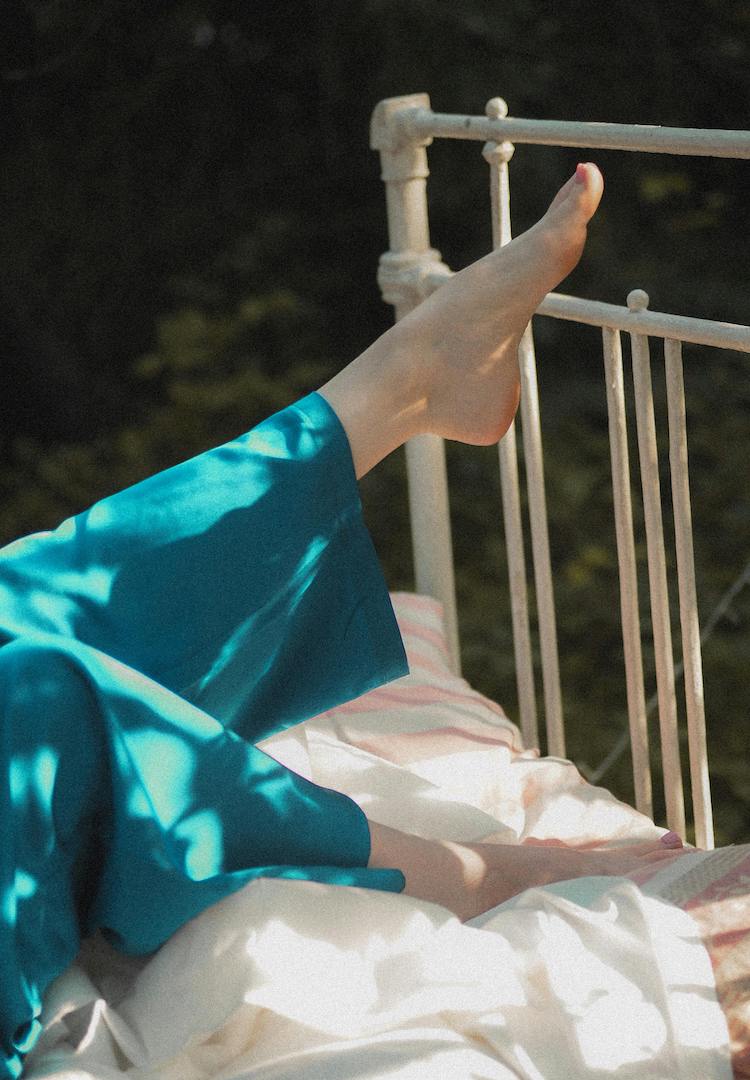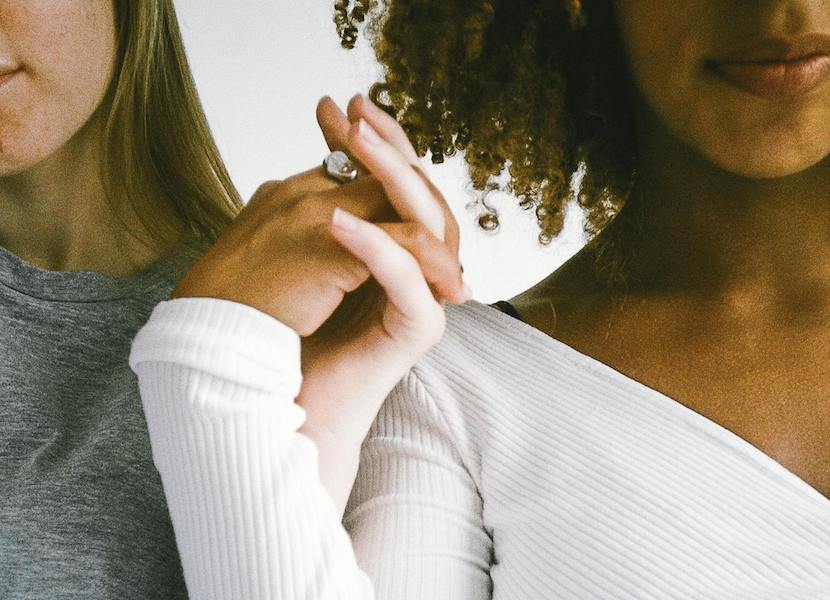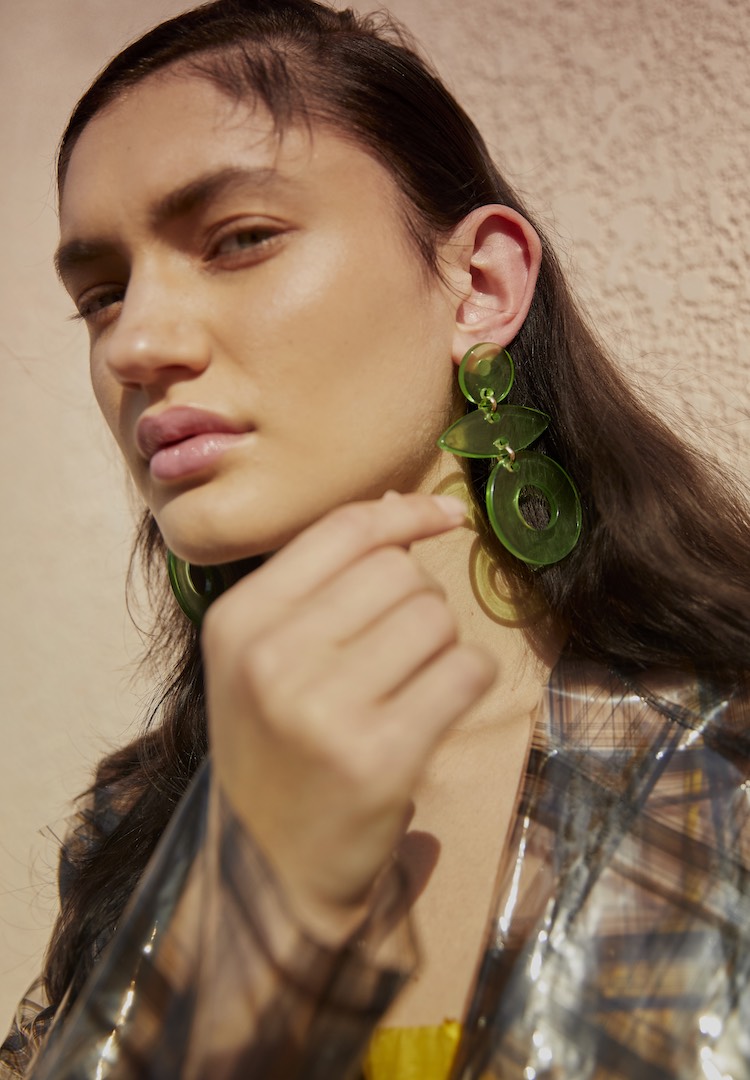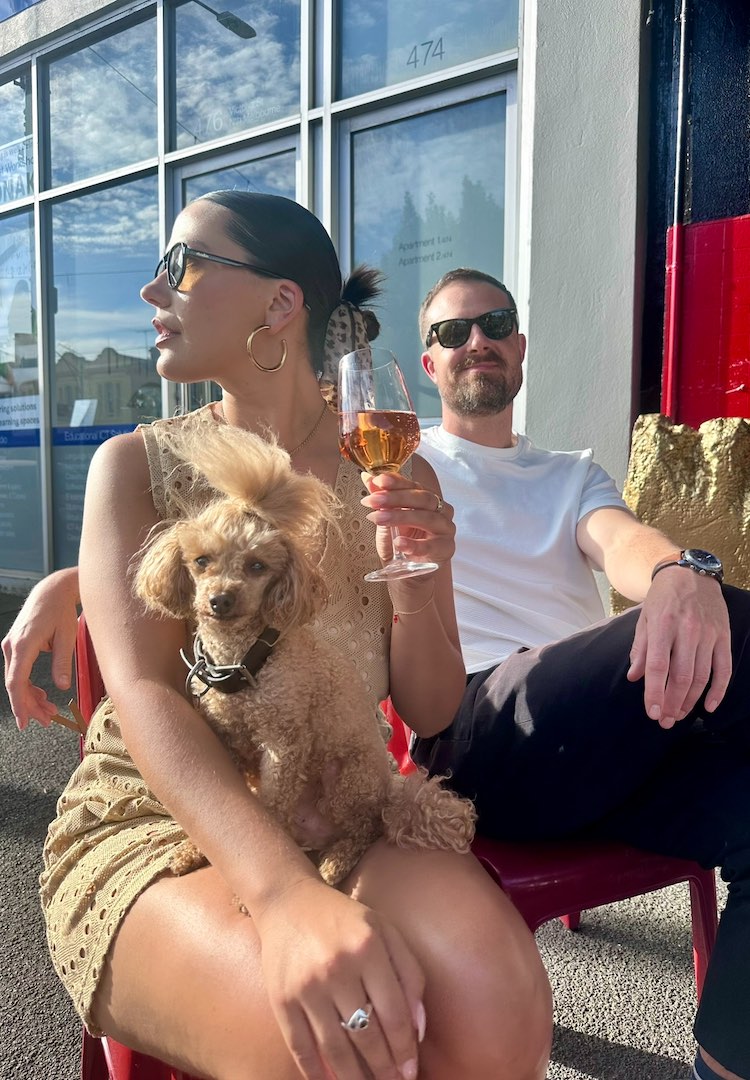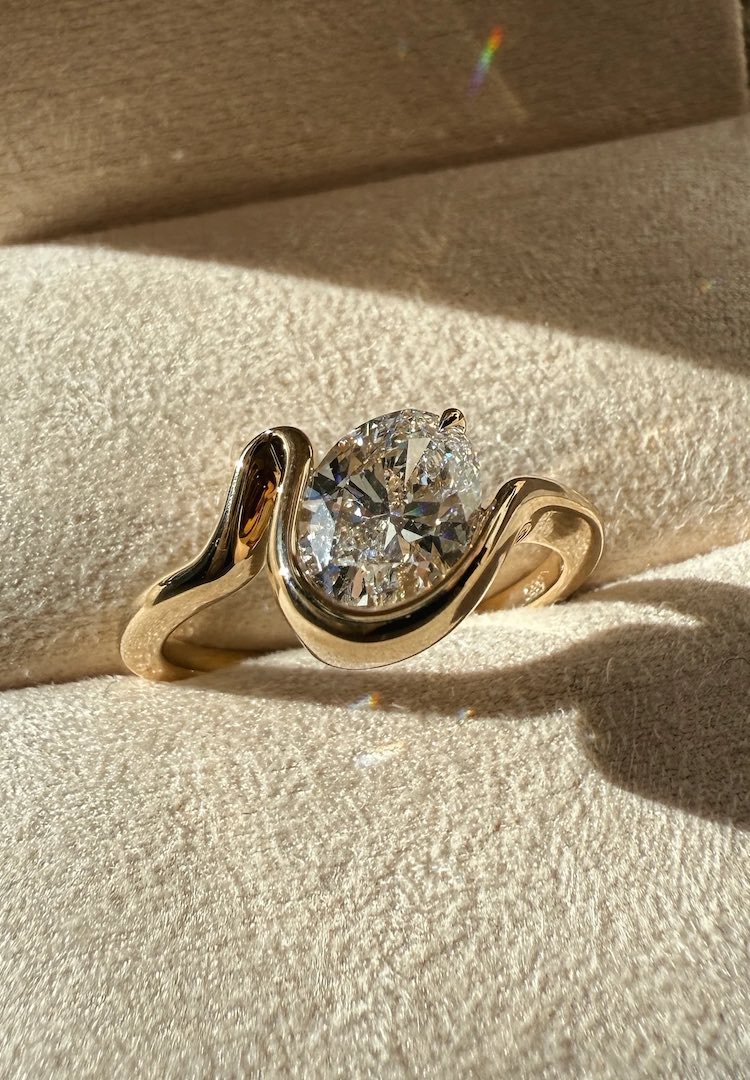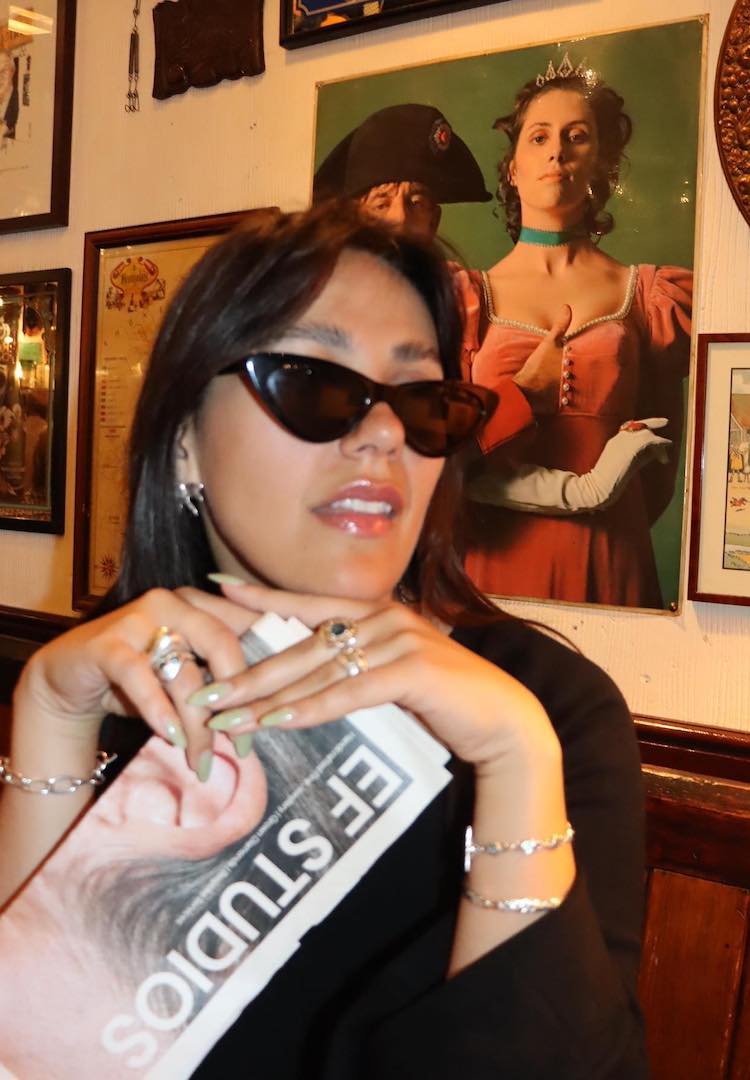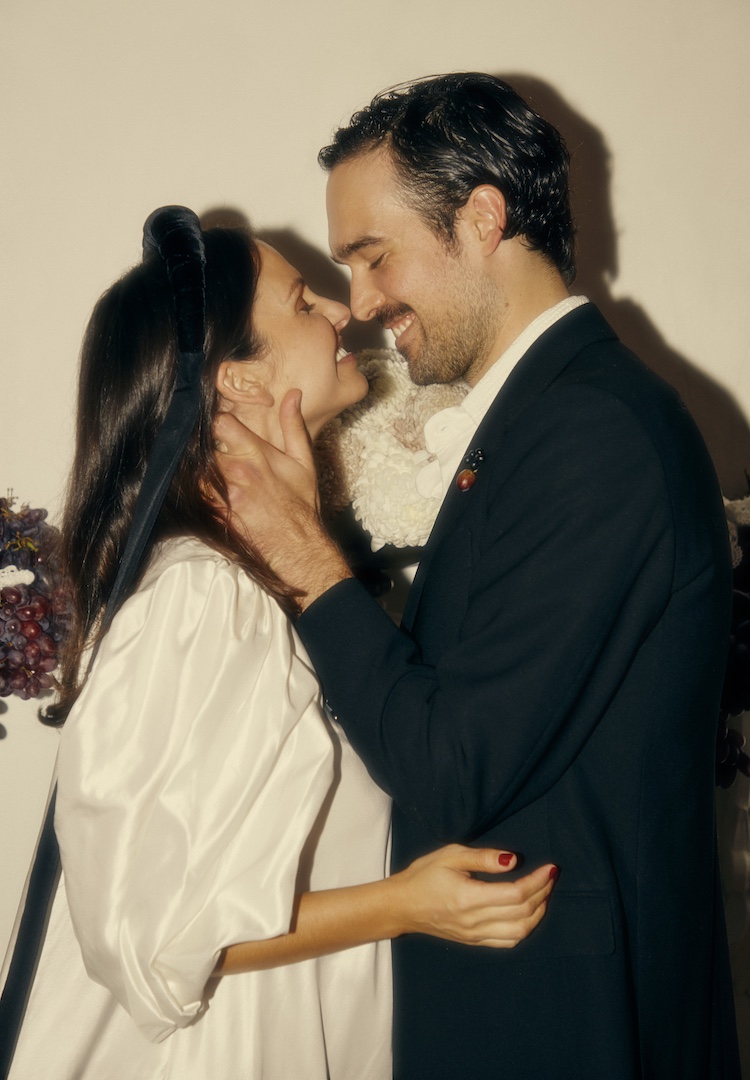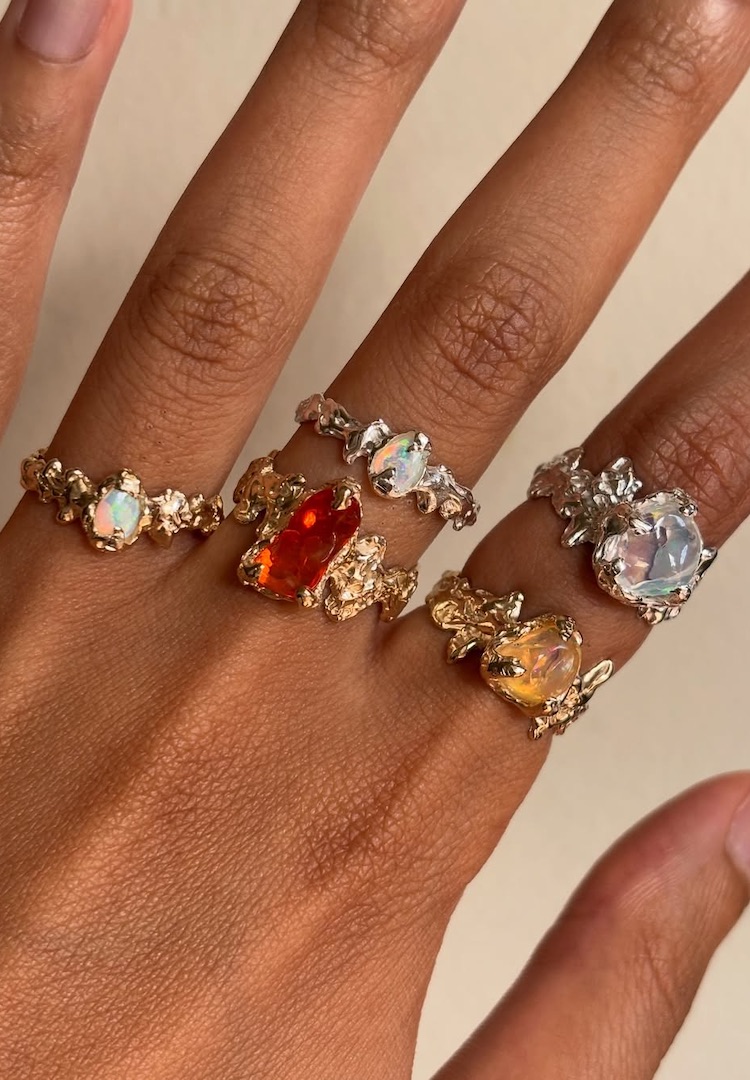Shoes off in the house, babe: Dating as a BIPOC in Australia
WORDS BY Ella Ferris
Why the f*ck we keep entrusting our hearts to white men, when it’s categorically, canonically and historically a terrible move for brown folk?
I’m walking down Lygon Street, cargo pants the right amount of baggy, thong out in a chic way, hair frizzed (I don’t care for my curls properly) and brown-skinned (more of an ashy beige in winter, if you know you know).
I’m hand in hand with my partner. He’s tall, wearing camo, has strawberry blonde stubble and is white. Very white. Welsh, Dutch, Australian. A tall glass of milk. My alabaster prince. We’re a vision of inner-city, Instagrammable, interracial love.
Interested to hear how others navigate the world? Head to our Life section.
My friend J and I have an ongoing gag that began when our entire friendship group of brown, mostly queer, women had white, blonde, male partners. We started to notice this specific coupling all around us, like a pseudo-anthropological game of Spotto.
I’ve become attuned to the flicker of recognition exchanged between myself and another BIPOC femme with her white boyfriend when we brush shoulders in the street. A glimmer in the eye. Well, well, well. You too, huh? I know. But he’s one of the good ones.
Until recently, I’d attributed my dating patterns to the spaces I frequent and the people I encounter as a Melbourne creative. I half-heartedly attributed it to the ‘Eurocentric beauty standard’, a reality that spans across continents. “Like a glitch in the matrix,” I joked once. A glitch that left us scratching our heads, wondering how and why the fuck we keep entrusting our hearts to white men, when it’s categorically, canonically and historically a terrible move for brown folk.
My work friend H is Taiwanese-Australian and speaks to me about how whiteness is “cherished” in Taiwan, in overt outlets like advertising and media, but also in more pervasive ways. The word for America in Mandarin is 美国 (měi guó), which directly translates to beautiful country. Another friend mentions it’d be a ‘flex’ to return to Indonesia with a white partner, because there, whiteness is considered more beautiful and more powerful than any other ethnicity.
But as my connection to my brownness deepens, so too does my devotion to my community and with it, my attention to the reaching tendrils of colonialism around me. How does it feel in the body to be othered? How does my internalised racism manifest?
An uncle told me once that when his family moved away from their hometown and their extended family, they tried to ‘forget’ that they were black. Australia’s custom of forced assimilation sends goosebumps down my neck.
My friend T and I are swapping meandering voice memos about emotional labour in interracial relationships and having to “explain your relationship with everything to another person that’s meant to be your person.”
Dating white people taught me that the loveliest of people can be unintentionally (or intentionally) racist, microaggressions will happen. Some people will rise to the occasion and some will not. Either way, if you’re a brown person dating a white person, you’ll be doing some emotional yakka to prune away some misconceptions and to cultivate expansive empathy.
I come alive in a different way when I’m with my brown friends. Call it code-switching, call it feeling safe. My romantic partners have always watched us in admiration and bewilderment, with excitement and timidness. Like most brown femme people I know, what I love about being BIPOC is the loving kindness of our community.
It’s difficult to explain the cultural load and the immense responsibility BIPOC feel to our families and chosen families to someone raised in an individualist society. ‘Educator’ was not a role I knew I was stepping into when I began dating.
“I often feel like I’m expected to have answers when really, I’m just trying to get on top of my shit,” I record myself and then listen back, admiring my quotability. “On any given day I’m mid-identity crisis, probably because someone has just told me I ‘don’t look Aboriginal’ or asked if I can speak my tribal language.” (I can’t.)
My first boyfriend warned me his family had some pretty hateful prejudices against Aboriginal people, and I spent the car ride from Melbourne to Sydney armouring myself with cool wit, sharp rhetoric and an open heart. But as his cousins were telling me they really, really wanted to climb Uluru, all that staunch confidence simply slipped from my body.
I didn’t want to be the one to tell them. What if I did tell them and they reacted terribly (like my Murri friend’s ex-boyfriend when he said, “I just don’t know what we – white Australian men – are even apologising for… it wasn’t me!). No, no. There was no telling them.
It’s alarming how many of my Asian friends have told me that they’ve been referred to, to their faces, as their partner’s ‘Asian girlfriend’. Similarly, when I meet a white partner’s family for the first time, my Aboriginalness is the skinny-ankled elephant in the room. I’m ‘the Aboriginal girlfriend’, which looks kind of cool written down – like I’m the final boss of all Aboriginal girlfriends – but in real life, it creates an ‘us’ versus ‘you’ dynamic, where I feel I must prove that I’m just like them.
Acts of othering like these are exhausting and disheartening. For me, it’s proof that my inherent distrust of the world outside my community is warranted. Aside from that, it hurts. It sucks to feel fundamentally misunderstood by your partner. It feels like being stranded. Alone. Naked. On a road island. On Alexandra Parade. You and all your people and your skin and your shame.
T reckons, “You don’t have to be misunderstood like that, you know… It’s probably time we actually start expecting more from our partners.” I asked some BIPOC friends how their partners have been great allies. J speaks on how BIPOC communities are generous with money and time, and how significant it was when their partner started to mirror that generosity with his own money.
H loves it when their partner orchestrates activities that celebrate their Taiwanese heritage. Another friend just wants to feel listened to and supported as they learn to take up more space as a brown woman.
I then asked which parts of their intercultural relationships need addressing, and the most resounding response was: “Shoes off, motherfucker.” You guys really need to take your shoes off at the front door. Stop and observe. Is anyone else wearing their shoes? Or am I the only one wearing crusty-ass Docs in here? How can I tread lightly through this space that is not my own? It’s all about gentle observation, respectful curiosity and taking initiative. Take your shoes off at the relationship door.
To hear another woman’s account of being in an interracial relationship, head here.

